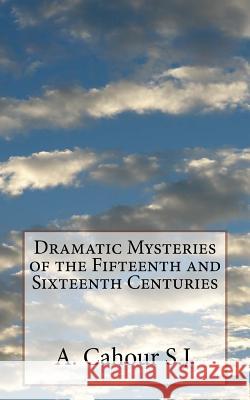Dramatic Mysteries of the Fifteenth and Sixteenth Centuries » książka
Dramatic Mysteries of the Fifteenth and Sixteenth Centuries
ISBN-13: 9781542483490 / Angielski / Miękka / 2017 / 104 str.
Excerpt: The drama of the Middle Ages ends with a sort of theatrical explosion. Everything disappears at once, under all forms and on every side. It included, like that of earlier times, "mysteries" drawn from the Old and the New Testament; "miracles" and plays borrowed from legends, tragedies inspired by the acts of the martyrs and by chivalric romances, by ancient history and by modern history; "moralities" whose allegorical impersonations represent the vices and the virtues; pious comedies like those of Marguerite de Valois, Queen of Navarre, upon the Nativity of Jesus Christ, upon the Adoration of the Magi, upon the Holy Family in the desert; profane comedies like those of the "Two Daughters" and the "Two Wives" by the same princess; ludicrous farces like that of Patelin the Advocate; licentious farces ad nauseam; finally, the "Soties," satirical plays in which the Clercs de la Basoche and the Enfants sans souci renewed the audacity of Aristophanes without reviving his talent. There were representations for all solemn occasions, for the patron-feasts of cities and parishes, for the assemblies of a whole country, for the "joyous entry" of kings and princes. There were also scenic entremets for banquets; and nearly all these displays were made with proportions so gigantic, with so much pomp and expense, that everybody must have participated in them, priests and magistrates, lords and citizens, carpenters and minstrels. The representation of a "mystery" became the affair of a whole city, of a whole province. The hangings of the theatre, the costume of the actors, exhibited the most beautiful tapestries, the richest dresses, the most precious jewels of the neighboring chateaux, and even the ornaments of the churches-copes for the eternal Father, dalmatics for the angels.
Zawartość książki może nie spełniać oczekiwań – reklamacje nie obejmują treści, która mogła nie być redakcyjnie ani merytorycznie opracowana.











